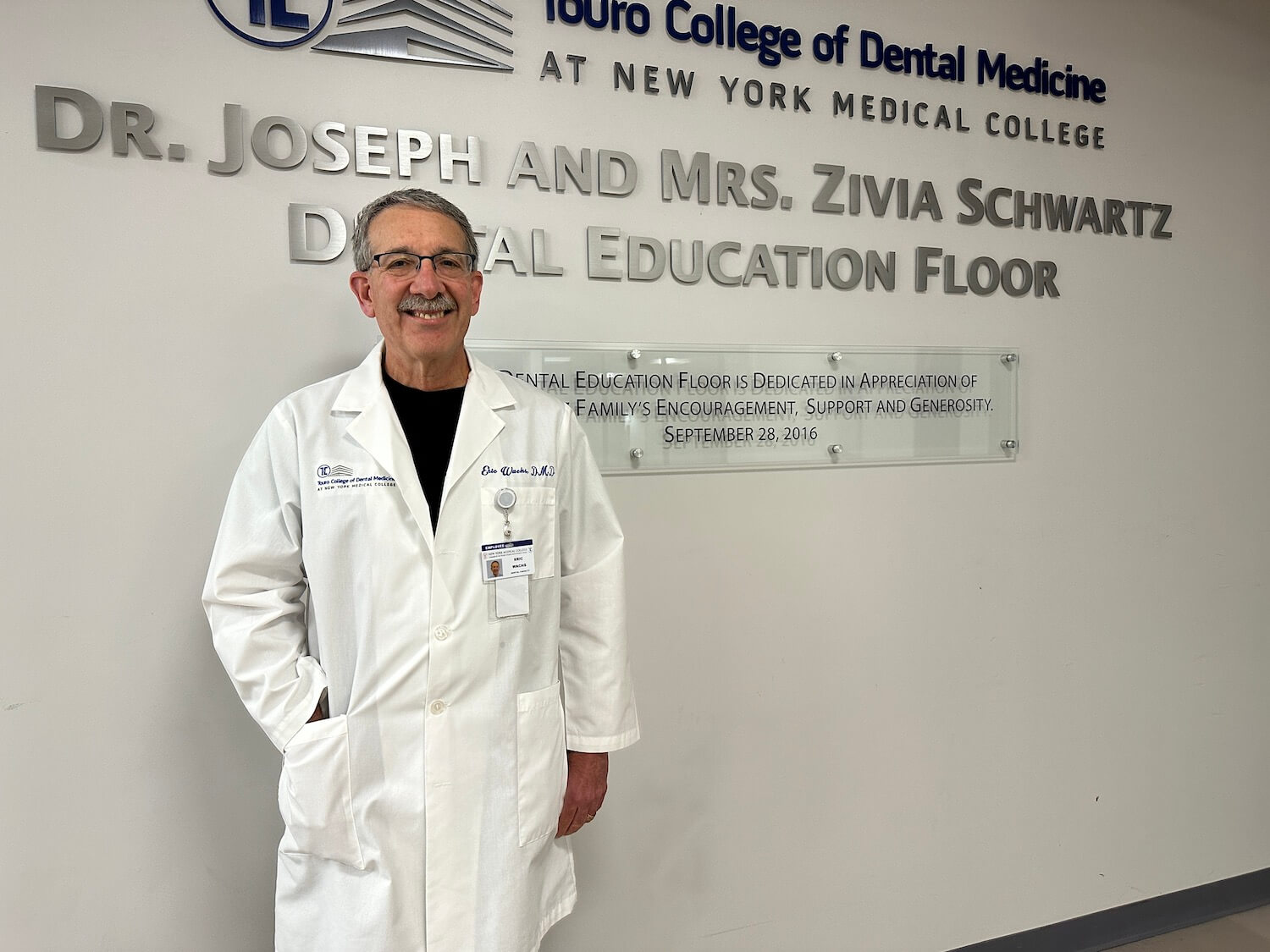Oral and Maxillofacial Surgeons Need to Stay Current, Keep Learning, and Adapt
Touro College of Dental Medicine’s Director of Oral and Maxillofacial Surgery Offers Advice on Building a Successful Career

Eric Wachs, D.M.D., is the Director of Oral and Maxillofacial Surgery and an associate professor of dental medicine at Touro College of Dental Medicine. Dr. Wachs has practiced as an oral and maxillofacial surgeon in Tarrytown, in Westchester County, New York, for more than thirty years and was a part of the founding faculty of the College, the first new dental school in New York in over 50 years. We spoke with Dr. Wachs about his lengthy career as well as his tips for thriving in dental school and the field in general.
How did you begin teaching?
Teaching has always been a component of my career. One of the things about going through a four-year residency program as an oral and maxillofacial surgeon is you teach as part of the residency. If you’re a first-year resident in oral surgery, you teach the general dentists in general practice residency. As a second year, you teach the first-year surgery residents and then as a third-year resident, you teach second-year residents. You grow up teaching, so it’s ingrained in you.
Why did you choose to become an oral surgeon?
General dentistry and oral and maxillofacial surgeons are both technique-oriented professions. I found that the procedures we do as surgeons interested me more than general dentistry. Oral and maxillofacial surgery is at the crossroads between dentistry and medicine. I was attracted to doing that kind of work.
What does it take to be a successful oral and maxillofacial surgeon?
It’s a very competitive field, so you need to have done well academically to enter it. You need a good background in medicine since the practice is really a medical/surgical specialty. You need to be able to take care of the whole patient and understand how systemic health relates to their surgical diagnosis and treatment, and then manage their overall condition. The common misconception about oral and maxillofacial surgeons is that they just remove wisdom teeth! We do a lot more! We take care of patients who have suffered trauma, treat any broken bone in the face, or suture skin lacerations. We perform biopsies, remove various types of pathologic conditions, and can reconstruct people’s jaws when necessary. Some oral surgeons treat malignancies and temporomandibular joint disorders both surgically and non-surgically. We treat cleft and syndrome patients as members of the craniofacial team and place dental implants to replace missing teeth. You need to be meticulous, be willing to work hard, and make sacrifices. As oral surgeons, we maintain hospital privileges to perform many of these procedures and take calls for the hospital. You may end up in the emergency room or operating room in the middle of the night.
How do you think the field has changed since you started practicing?
As health care providers, we were always motivated to take care of our patients, but now patient care, ethics, and professionalism have moved to the forefront. We didn’t talk about it and emphasize it the same way as we do now. There’s also a lot more learning by simulation where you work on models before you work on patients. Fortunately, today, the simulated models are a lot better, more realistic, and more accurate, compared to what was previously used in dental school. Now, you can learn and perfect your skills before you touch a patient. We even teach the students communication skills on simulated patients. The field itself now relies more on techniques and technologies related to digital dentistry. Being a new school, we’re at the forefront of digital technology so as things develop, we’re pretty much on target.
What is some advice you give to graduating students?
Stay current. Lifelong learning is crucial; continuing education courses are vital. The techniques we were taught years ago aren’t the same as we use today. You must continuously learn. Dental school or residency is often the end of your formal schooling, but learning never ends. Pay attention to everyone. Everyone around you has something to teach you.
Additionally, you need to find out what works for you especially when it comes to dealing and communicating with patients. Strategies that might work for a calm patient might not work for a nervous one. Strategies that work for a more experienced provider might not work for the new grad. You need to learn to adapt. Every dentist needs to find their own way.
Lastly and arguably the most important piece of advice I give is to make sure you enjoy what you’re doing. If you’re practicing dentistry, you’re going to be spending a lot of time doing it. If you enjoy what you do, it will be a better experience for both you and your patients.

